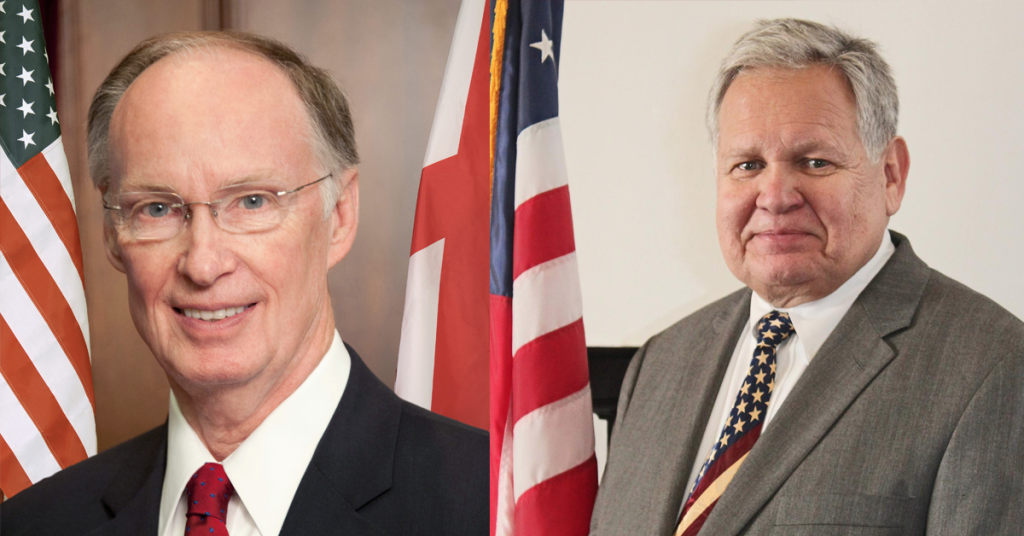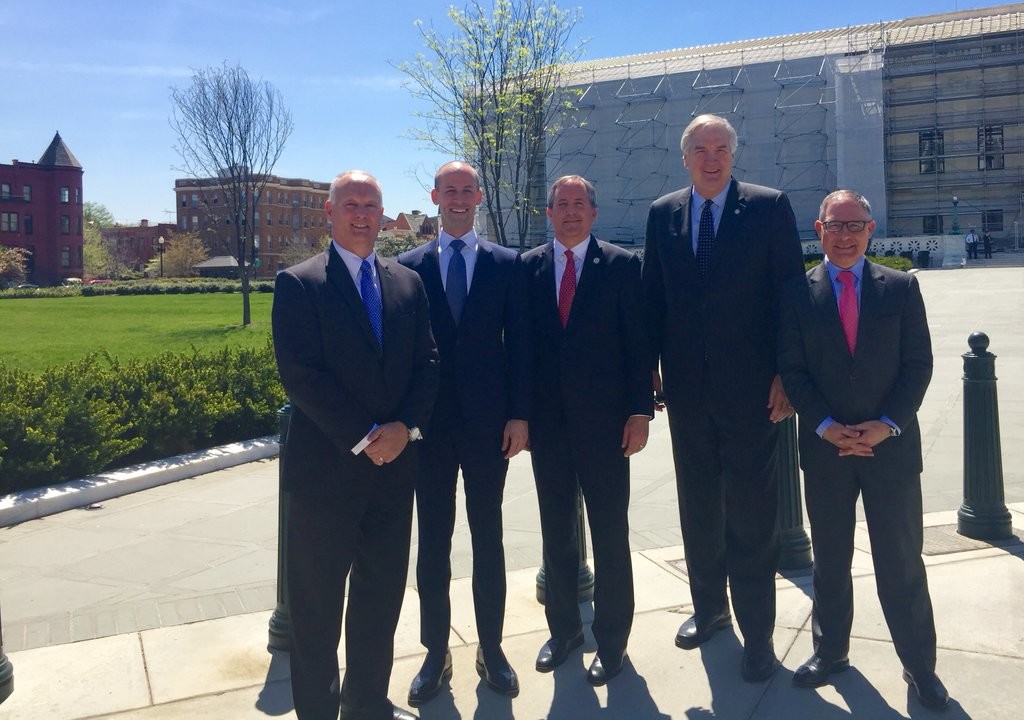GOPer: Rules change would prevent ‘dictatorial’ convention

A member of the Republican National Committee trying to revamp GOP rules for nominating a presidential candidate says without the change, party leaders could exert “almost dictatorial power” at this July’s nominating convention. The criticisms by Solomon Yue, RNC committeeman from Oregon, were the latest broadside in an internal GOP battle over the rules that will help decide the party’s standard-bearer for the White House. The comments, included in an email he sent Monday that was obtained by The Associated Press, come two days before party leaders gather in Hollywood, Florida, to discuss whether to propose changing bylaws for the convention. The fight pits Yue and some allies against GOP Chairman Reince Priebus and other top party officials. It underscores the high stakes as the convention in Cleveland, Ohio, looms as the first in four decades that may begin without a presumptive presidential candidate. The RNC said Monday that Priebus will oppose any effort to change the convention’s rules at this week’s Florida RNC meeting. The RNC can recommend convention bylaws, but only the convention’s 2,472 delegates can adopt them. Priebus believes “the rules of the convention should be decided by the delegates elected by Republican grassroots voters,” the RNC said in a statement. With Priebus and other top party officials arrayed against him, Yue could face an uphill battle. Henry Barbour, RNC committeeman from Mississippi, said he sees little support for “a change three months before what would be the first open convention in 40 years. Nobody wants to look like they’re trying to give an advantage to one candidate or another.” Yue wants the convention to use Roberts Rules of Order, which would let delegates block the convention’s presiding officer from allowing the nomination of fresh candidates for president. GOP conventions have long used House of Representatives’ rules, which give the presiding officer more unfettered power to run each day’s session. “I believe in democracy and majority rule of the delegates and am concerned that almost dictatorial power the House rules give the chairman of the convention will lead to confusion, chaos, manipulation and revolt at the convention,” said Yue’s email, which he sent his 55 colleagues on the RNC’s rules committee. Yue wrote that Oregon Republicans want him to “stop the D.C. establishment from parachuting in their favorite candidate as a ‘fresh face’ into the convention.” He said the party is in “a period of mistrust.” House Speaker Paul Ryan, R-Wis., is expected to be the convention’s presiding officer. He has said he wouldn’t accept the presidential nomination, but others have held out hope that he or another fresh candidate could emerge as the candidate. Many in the party want businessman Donald Trump and Texas Sen. Ted Cruz, the leading contenders, and Ohio Gov. John Kasich, who trails, to be allowed to battle it out without facing a new rival who’s not run for president this year. In an interview, Yue declined to predict whether he would prevail when the GOP’s rules committee considers his proposal this week. He said if his plan is rejected, he will push for its approval by the full RNC and then at the July convention, where he said he believes the delegates will look more favorably at it. “The anger is from outside the party, the grassroots,” Yue said. “They don’t want to see the chairman of the convention get absolute power.” Republished with permission of the Associated Press.
Alabama lawmakers to hold hearings on state’s Medicaid dilemma

The countdown is on for Alabama lawmakers to come up with a solution for $85 million shortfall to fund the state’s Medicaid program in the eight remaining legislative days — or else risk coming back for a special session. Part of an ongoing budget impasse, funding for the state’s Medicaid program — which covers approximately a million Alabamians — has been an hot-button topic in the Legislature this year. Last month Alabama Gov. Robert Bentley vetoed the state’s General Fund budget over the lack of Medicaid funding, but lawmakers bucked his veto and voted to override it. The House and Senate general fund budget committee have scheduled a joint meeting Wednesday to discuss the Medicaid shortfall. Bentley and Alabama Medicaid Commissioner Stephanie Azar have said the program will see cuts in Medicaid services without additional funds, which could force the state to eliminate prescription drug coverage for adults, adult eyeglasses, prosthetics, outpatient dialysis, or requiring patients to go to one big box pharmacy, among other possibilities. “I think today it is very important for recipients to know that their access to care is at risk and for the Medicaid providers in the state to start preparing for the impact of these cuts,” Azar said.
State launched electronic database to clear confusion, post docs for Ala. homeowners’ associations

Designed to provided transparency for homeowners’ associations across the state, the Alabama Office of the Secretary of State announced the activation of a new electronic database Monday. The database is a direct result of 2015’s Alabama Homeowners’ Association Act, which Gov. Robert Bentley signed into law requiring the Secretary of State to implement and maintain an electronic database with which homeowner’s associations must file certain association documents. Organized by association name, the database is accessible by the public through the Secretary of State’s website and provides the capability to search and retrieve association filings. “This new electronic database will allow Alabama citizens to access certain documents related to Homeowners’ Associations,” said Alabama Secretary of State John Merrill. “By providing a searchable database the public will have the capability to retrieve documents relating to association filings. I want to commend Representative McCutcheon for his leadership in the passage of this bill.” According to the Association of County Commissions of Alabama website, the Alabama Homeowners’ Association Act “was conceived after numerous complaints from new homeowners, who had no knowledge that their homeownership bound them to all the covenants and fees imposed by the homeowner’s association.” The link to access the database can be found here.
Robert Bentley signs bill to help protect vulnerable adults from financial exploitation into law

Gov. Robert Bentley has signed a bill to help protect vulnerable adults from financial exploitation into law Monday. Drafted by the Alabama Securities Commission (ASC), SB 220, entitled Protection of Vulnerable Adults from Financial Exploitation Act, will provide an important added layer of legal protection for Alabama adults who may be susceptible to financial abuse and exploitation. Under the new law, both the Alabama Securities Commission and the Alabama Department of Human Resources would be promptly notified by broker-dealers, investment advisers, agents and other qualified individuals who service the financial needs of adults when those financial professionals have a reasonable belief that financial exploitation of a vulnerable adult may have occurred, has been attempted or is being attempted. “We should do everything we can to thwart any efforts of those who would seek to prey upon the elderly and steal their hard earned savings,” said State Sen. Arthur Orr (R-Decatur) one of the bill’s co-sponsors. I thank the Alabama Securities Commission for its vigilance to protect all Alabamians from theft and squander from nefarious actors.” SB 220 passed the Alabama Senate on April 12, 2016 and was then forwarded to the Alabama House, where it’s companion bill HB 211 passed upon presentation on the floor of the House by State Representative Paul Beckman (R-Prattville) “This is a very important tool to protect the life savings and assets of our senior Alabamians; especially those seniors who may eventually suffer from a diminished capacity to make wise and informed financial decisions,” House co-sponsor Beckman weighed-in. “A special thanks to the Alabama Securities Commission for its continued and successful efforts to protect our valued senior citizens.” ASC Director Joseph Borg cheered on the legislation. “This significant legislation will be a powerful mechanism to help ensure that the investment community of stockbrokers, investment advisors and financial professionals will report suspicious financial activity involving any vulnerable Alabama adult who is exposed to dishonest or illegal actions that could jeopardize their long-term financial well-being,” said Borg.
Hillary Clinton, Bernie Sanders make final pushes ahead of New York primary

Hillary Clinton greeted recently-unionized workers at a Queens car wash during her final day of campaigning ahead of the New York primary. Clinton cited the workers as evidence of how “real change happens.” “It didn’t happen overnight,” she told a small crowd at the Hi-Tek Wash & Lube. “You work at it every day.” The remark echoes her recent attacks on rival Bernie Sanders, who she says promises an impossible-to-achieve “political revolution.” Earlier on Monday, she stopped at a hospital in Yonkers and urged workers to support her at the polls. Clinton will join New York Senator Kirsten Gillibrand for a rally in the afternoon. Clinton also said the White House should take a “hard look” at whether to declassify 28 pages of the 9/11 commission report. Families of victims and some members of Congress say the government has suppressed information about the attack. Clinton is campaigning with Sen. Charles Schumer, who joined the effort. She’s also backing legislation that would allow the Saudi government to be held responsible for any role in the attacks in US courts. Meanwhile, Sanders is backing legislation that would let Americans sue Saudi Arabia over the 9/11 terrorist attacks. The bill is opposed by the Obama administration but is important to families of 9/11 victims, some of whom believe Saudi officials played some part in the attacks. Sanders spoke in favor of the legislation, saying it’s important to have a full understanding of the “the possible role of the Saudi government in 9/11.” U.S. inquiries have not reported a link between the Saudi government or its senior officials and the attacks. But Sanders notes that some conclusions remain classified. Sanders says Saudi Arabia promotes an extreme and “very destructive” version of Islam. Fifteen of the 19 hijackers in the September 2001 attacks, which destroyed the World Trade Center and killed thousands, were citizens of Saudi Arabia. Republished with permission of the Associated Press.
Robert Bentley releases 2015 tax returns, reports $147K in income

Gov. Robert Bentley has reported earning $147,624 on his federal tax return for tax year 2015, a steep reduction from the previous year’s filing, having lost a significant portion of his assets in his divorce from former First Lady Dianne Bentley. Bentley first released his tax return during the his campaign for Governor in 2009 and has continued to make public his federal and state tax returns every year since being elected. “As a promise to the people of Alabama, I am again releasing my income tax filings for the citizens of Alabama to see the financial standing of their governor,” Governor Robert Bentley said. “It is a mark of transparency that the people of Alabama value, and one that I have prioritized. As long as I am governor, these filings will be made public to continue the legacy of transparency promise I made years ago.” The returns show that Bentley is also fulfilling another campaign promise to Alabama: to not collect a salary. During the 2010 election Bentley said he would not accept the $121,000 annual salary until the state returned to “full employment” — a level he defined as a 5.2 percent unemployment rate. The state’s unemployment rate was 6.2 percent in March. Instead, the bulk of his income came from distributions from retirement accounts. You can view Bentley’s 2015 tax return here.
Supreme Court rejects appeal over Cottonwood man’s life sentence in marijuana case

The U.S. Supreme Court on Monday declined to hear an appeal in a case of a 76-year-old Cottonwood, Ala. man who was sentenced to life in prison without parole for possessing less than three pounds of marijuana. In October 2014, Lee Carroll Brooker was sentenced to life in prison in without parole under the Yellowhammer state’s habitual offender law. Brooker, a disabled veteran suffering from chronic pain, claimed the marijuana plants grown behind his son’s house were for medicinal use. There is no medical use exemption for growing marijuana under Alabama state law. Lawyers for Brooker argued the sentence violates the U.S. Constitution’s ban on cruel and unusual punishment. Nevertheless the justices from the high court let the original sentence stand. Thursday, The New York Times editorial board agreed with Brooker’s lawyers and urged the Supreme Court to hear the case. “The justices should take the case and overturn the sentence… Life without parole, second only to the death penalty in severity, should never be a mandatory sentence for any crime, much less for simple possession of marijuana, which is not even a crime in many parts of the country,” the editorial read. “Mr. Brooker’s punishment for marijuana possession is the definition of cruel and unusual.” Last September, the Alabama Supreme Court also declined to hear the case. But that didn’t stop Alabama Chief Justice Roy Moore from writing a separate concurrence to the court’s decision questioning the “grave flaws” in Alabama’s sentencing system. “I write separately because I believe Brooker’s sentence is excessive and unjustified,” Moore wrote in his concurrence. “Under circumstances like those of Brooker’s arrest and conviction, a trial court should have the discretion to impose a less severe sentence than life imprisonment without the possibility of parole.” Moore continued: “In my view, Brooker’s sentence of life imprisonment without the possibility of parole for a non-violent, drug-related crime reveals grave flaws in our statutory sentencing scheme. I urge the legislature to revisit that statutory sentencing scheme to determine whether it serves an appropriate purpose.” According to the Alabama Department of Corrections website, Brooker is serving his sentence at Holman Prison in Atmore.
Jim Zeigler slams Robert Bentley, calls for “executive recall” mechanism to oust Governor

State Auditor Jim Zeigler is an old foe of Gov. Robert Bentley. Now that the governor is now embattled over accusations of inappropriate behavior towards a former staffer – and widespread opposition from members of his own Republican Party – Zeigler made remarks over the weekend indicating he does not intend to ease off now. Zeigler spoke to supporters of the so-called Common Sense Campaign, a conservative political group, in the town of Theodore over the weekend, away from the scourge of “Sodom and Montgomery.” There, he excoriated the governor for what he called — appropriating the famous Hank Williams song — “His Cheatin’ Heart.” “When tears come down like fallin’ rain / You’ll toss around and call her name,” recited Zeigler in a bawdy send-up of Zeigler. “But she won’t come the whole night through / because her cushy job is through.” Zeigler served up invective against both Zeigler and the lawmakers who have made little progress in fledgling efforts to impeach him. Calling his summary of the matter a “Lack of Progress Report,” Zeigler noted a bill to begin impeachment proceedings filed by Rep. Ed Henry has not been taken up in committee and stands little chance of passing before the Legislature adjourns by May 16. Zeigler said that means no legislative impeachment process could take effect until 2017 at the earliest. “The people of Alabama want and need a solution to the serious problems in the governor’s office soon, not in 2017,” said Zeigler. “To allow the dysfunction… to linger until 2017 is not acceptable.” Towards that end, Zeigler proposed legislative to create what he dubbed an “executive recall.” The bill, which he said was more likely to pass than existing mechanisms, would: Propose a constitutional amendment establishing a recall process for all seven members of the Cabinet, including the offices of governor and state auditor, to be voted on in November 2016; Provide that a petition by 10 percent of registered voters may trigger such a process; and If recalled, a special election to replace the governor would be held within 120 days. The process would avoid the usual order of succession should a governor step down, whereby an existing officer would take their place because that way, “The people remain in control, not Montgomery politicians.”
This week in the U.S. House of Representatives, Senate: Apr. 18 – 22, 2016

With taxes due Monday, it’s fitting the U.S. House of Representatives will consider several bills dealing with the IRS this week. On Monday and Tuesday, the House is in session and will consider several bills under Suspension of the Rules including: H.R. 4903, which permanently prohibits the use of funds by the IRS to target U.S. citizens for exercising their First Amendment rights. H.R. 4284: the Service Provider Opportunity Clarification Act. This bill aims to improve the regulations regarding government contracts and small business subcontractors H.R. 3714: the Small Agriculture Producer Size Standards Improvements Act. This bill seeks to improve agriculture enterprises’ access to Small Business Administration (SBA) programs. A full list of bills that will be considered under suspension can be found here. Also on the House floor this week: H.R. 4885: the IRS Oversight While Eliminating Spending (OWES) Act. The bill makes Internal Revenue Service (IRS) spending of the user fees it collects subject to the annual appropriations process, thereby blocking the IRS from spending collected user fees unless Congress provides for such spending in appropriations acts. Alabama co-sponsor(s): None. H.R. 1206: the No Hires for the Delinquent IRS Act. The bill prohibits the IRS from hiring any new employees until the Treasury Department certifies that no IRS worker has serious tax delinquencies. Alabama co-sponsor(s): None. H.R. 3724: the Ensuring Integrity in the IRS Workforce Act. The measure prohibits the IRS from rehiring former employees who were previously removed or terminated for misconduct. Alabama co-sponsor(s): None. H.R. 4890: the Ban IRS Bonuses Until Customer Service Strategy is Developed act. The bill bans the payment of bonuses to IRS employees until the agency develops a comprehensive customer service strategy. Alabama co-sponsor(s): None. On Friday, the House is not in session. Highlights of what is happening in House Committees this week: Budget Season: The House Appropriations committee continues its FY17 hearing slate, a full list of those hearings can be found here. NDAA: The House Armed Service Committee’s subcommittees begin consideration of their respective portions of the annual National Defense Authorization Act (NDAA) this week. A full committee markup is expected next week. A full list of subcommittee markups can be found here. Endangered Species: On Tuesday, the House Natural Resources Committee will hold a hearing titled “Recent Changes to Endangered Species Critical Habitat Designation and Implementation.” More information here. Veterans Health Care: On Tuesday, the House Veterans’ Affairs Committee will hold a hearing titled “A Continued Assessment of Delays in Veterans’ Access to Health Care.” More information here. Foreign Affairs Markup: On Wednesday, the House Foreign Affairs Committee will hold a markup of H.R.1150, the Frank R. Wolf International Religious Freedom Act of 2015; H.R.3694, the Strategy to Oppose Predatory Organ Trafficking Act; H.R.4939, the United States – Caribbean Strategic Engagement Act of 2016; H.Con.Res.88, Reaffirming the Taiwan Relations Act and the Six Assurances as the cornerstone of United States-Taiwan relations; S.284, the Global Magnitsky Human Rights Accountability Act; and S.2143, to provide for the authority for the successors and assigns of the Starr-Camargo Bridge Company to maintain and operate a toll bridge across the Rio Grande near Rio Grande City, Texas. More information here. Transportation Markup: On Wednesday, the House Transportation and Infrastructure Committee will hold a markup of the General Services Administration Capital Investment and Leasing Program Resolutions; legislation to designate the federal building at 99 New York Avenue NE, in the District of Columbia as the “Ariel Rios Federal Building”; and H.R.4937, the Protecting our Infrastructure of Pipelines and Enhancing Safety Act of 2016. More information here. Small Business: On Wednesday, the House Small Business Committee will hold a hearing titled “Small Business and the Federal Government: How Cyber-Attacks Threaten Both.” More information here. Puerto Rico: Further consideration of the “Puerto Rico Oversight, Management, and Economic Stability Act” by the House Natural Resources Committee is also possible this week. Meanwhile the U.S. Senate will endeavor to wrap up consideration of the Federal Aviation Administration (FAA) reauthorization bill this week. Following the FAA reauthorization bill, the Senate is expected to resume work on S. 2012: the Energy Policy Modernization Act of 2015. Floor consideration of this bipartisan legislation will include eight amendments by roll-call vote and 29 by voice. America’s national energy policy has not been updated since 2007. Alabama co-sponsor(s): None. Highlights of what is happening in Senate Committees this week: Drug trafficking. On Tuesday, the Homeland Security and Governmental Affairs Committee will hold a hearing to examine preventing drug trafficking through international mail. More information here. Water supply. On Wednesday, the Environment and Public Works Committee will hold a hearing to examine new approaches and innovative technologies to improve water supply. More information here. Tax code: On Wednesday, the Joint Economic Committee will hold a hearing to examine our complex tax code and the economy. More information here. Border Protection: On Thursday, the Finance Committee will hold an oversight hearing to examine the Customs and Border Protection agency. More information here.
Meet Donald Trump’s maxed-out donors, believers in the cause

Letantia Bussell, a Beverly Hills dermatologist, says she appreciates Donald Trump‘s “unique personality.” Peter Zieve, an engineer in Washington, loves Trump because “the guy’s a person, not a robot.” Daniel Arias, an El Salvadoran immigrant in Florida, is positive Trump will put an end to newcomers “coming here and begging for food stamps.” They are the few, the proud, the maxed-out Trump donors. The leader of the Republican presidential contest ridicules donors and insists he is a billionaire who wants to “self-fund.” Yet there’s a prominent “donate” button on his campaign website, and he has raised more than $9.5 million, including from about 200 people who have given $2,700, the maximum allowed by law for the primary election. Because it’s such a relatively small sample — a tiny sliver compared with Hillary Clinton‘s nearly 29,000 maxed-out donors — it’s impossible to reach broad conclusions about Trump’s benefactors. Still, these are arguably the most loyal of Trump fans, and their interviews with The Associated Press reveal unexpected layers of the political newcomer’s appeal. They’re both attracted and repelled by Trump’s inflammatory comments. Just like the thousands who attend Trump’s massive rallies, these well-off fans want dramatic change and see Trump as the only person capable of making it happen. And far from being embarrassed by their candidate, the donors seem to love converting their friends and associates to the cause. The list of maxed-out donors includes some characters. Literally. One is Alice Chapman, a reality television star and the wife of Dog the Bounty Hunter. Most people who part ways with several thousand dollars are on firm financial footing. Some of Trump’s donors are downright rich. John Ferolito, who co-founded AriZona iced tea, gave in July. And Scott Shleifer, head of the multi-billion-dollar New York hedge fund Tiger Global, ponied up $2,700 last year, a few months before he purchased an $18 million Park Avenue condo. The AP culled the names of Trump’s top donors from his public Federal Election Commission filings, which are complete through the end of February. More contributors will emerge on Wednesday, when he files his March fundraising documents. It’s all about immigration for Arias, himself an immigrant. The 75-year-old real estate investor in Coconut Grove said he came to the country legally some 30 years ago. “He’s the only one who is going to do something to stop illegal immigration,” said Arias, who contends many come here for the government benefits and “to steal and sell drugs.” Trump famously kicked off his campaign by saying some Mexican immigrants who entered the country illegally are “rapists.” Some of the donors have taken issue with Trump’s most incendiary comments. Zieve, an engineer who said he conducts business around the world and is a longtime Republican Party donor, said he’s “not proud of some the silly stuff he’s said.” “Sometimes I wish he would put a zipper on it,” Zieve said. At the same time, that no-holds-barred approach has kept him riveted — and supportive. Zieve gave $2,700 at the end of February. “Every time something comes out of his mouth, it’s exactly something that would come out of my mouth,” he said. Bussell, the dermatologist, said she gave because she likes Trump, though she hasn’t met him. Trump, she said, has “a certain sense of humor” and doesn’t precisely mean everything he says. “We don’t need more of the same,” she said. “We need a change. It’s as if the country is in need of a significant oil change and he is the best mechanic.” The first person to donate $2,700 to Trump’s presidential bid, weeks before he even glided down the escalator in his New York tower and declared his candidacy, was Pamela Newman, a friend and a longtime insurance provider for Trump’s business. The campaign has been good to her, as well: Between June and February, it paid the branch of Aon Risk Services where she works almost $300,000. Yet not all of those who know Trump and gave him money are doing so for the usual reasons. Joe Kaminkow, a well-known game developer, met Trump years ago when designing a slot-machine version of “The Apprentice,” Trump’s hit TV show. He described him as “a gentleman.” Still, he said, “I think we need a president who maintains our stability and strength with understanding. And he isn’t behaving in that way.” So why the heck did Kaminkow, an admitted Democrat, give Trump $2,700 in August? “I was so entertained by what I saw from the Republicans on TV,” he said, “that I wanted to do my part to keep that party going.” Republished with permission of the Associated Press.
AG Luther Strange attends SCOTUS oral arguments for multi-state lawsuit over executive amnesty

Alabama Attorney General Luther Strange attended the U.S. Supreme Court oral arguments Monday morning in the federal lawsuit against the Obama administration’s executive amnesty order. The case, known as United States v. Texas, calls into question President Barack Obama’s actions aimed at allowing millions of undocumented immigrants to apply for government programs that could make them eligible for work authorization and associated benefits. “Today marked a major milestone in the States’ effort to stop the cavalier and unconstitutional actions of the Obama administration in exceeding its legal authority over Congress and the States,” said Attorney General Strange. Alabama is part of the 26-state coalition led by Texas suing the federal government to block the implementation of President Obama’s unconstitutional executive action legalizing the status of over four million illegal aliens. “This lawsuit, backed by a majority of U.S. states, is about more than the federal government’s attempt to grant amnesty to millions of illegal aliens,” further observed Attorney General Strange. “This lawsuit is about the President’s illegal attempt to change federal law in order to achieve what he was unable to do when Congress voted down his amnesty legislation.” Strange continued, “Through his executive action, the President made dramatic changes that extend legal benefits to people who are openly violating the law, without so much as the notice and opportunity for comment that is required for changes in the federal rule-making process. These actions are unconstitutional and illegal, and will severely impact the States with increased costs for law enforcement, health care and education.” Based on questions asked during the 90-minute oral argument, the case essentially tests the limits of presidential powers. “Two lower federal courts have agreed with our position that the President’s executive order harms the States, and in November the U.S. Fifth Circuit Court of Appeals granted our request for an injunction pending the hearing of this case before the U.S. Supreme Court. I believe the High Court must consider the impact of the majority of States opposing this illegal executive order and I am hopeful it will be ruled unconstitutional,” Strange concluded. The 26 states suing the Obama administration over its executive amnesty plan include Texas, Alabama, Arizona, Arkansas, Florida, Georgia, Idaho, Indiana, Kansas, Louisiana, Maine, Michigan, Mississippi, Montana, Nebraska, Nevada, North Carolina, North Dakota, Ohio, Oklahoma, South Carolina, South Dakota, Tennessee, Utah, West Virginia and Wisconsin. A ruling on the matter is expected from the justices by the end of June.
Tax time: More than 5M returns expected by midnight deadline

Millions of taxpayers were facing a midnight deadline to file their tax returns, while millions of others were asking for a six-month extension. The filing deadline on Monday was delayed three days beyond the traditional April 15 deadline because Friday was a legal holiday in the District of Columbia. Some things to know about taxes: THANK YOU, EMANCIPATION DAY The traditional April 15 filing deadline was extended because of Emancipation Day, a legal holiday in the nation’s capital. The holiday commemorates President Abraham Lincoln‘s signing of the District of Columbia Compensated Emancipation Act in 1862. The act freed more than 3,000 enslaved people in the district and compensated their owners. The Friday holiday moved the tax deadline to the next business day. In Massachusetts and Maine, taxpayers get one more day to file. The deadline there is Tuesday because Monday is a legal holiday, Patriots’ Day, in both states. The holiday commemorates the first battles of the Revolutionary War in 1775. When the federal deadline is moved back, state and local deadlines also move back to match it. ___ 150 MILLION TAX RETURNS The IRS said millions of tax returns are filed daily as the tax deadline approaches, with more than 5 million returns expected on Monday. More than 150 million tax returns are expected to be filed in 2016. Almost 82 million refunds were issued as of April 8, the IRS said. The average refund amount was $2,798. For those who needed more time to finish their returns, tax-filing extensions were available. The IRS reminds taxpayers that extensions grant more time to file returns, but do not extend time to pay. The IRS projects it will receive 13.5 million requests for extensions. ___ CONGRESS TARGETS IRS The IRS is a favorite target of lawmakers from both parties who complain about the complexity of the tax code and accompanying regulations that span more than 70,000 pages. Instructions to complete IRS Form 1040 — the main individual income-tax return — run more than 100 pages. House Speaker Paul Ryan, R-Wis., released a statement Monday outlining “three reasons why the IRS is failing” taxpayers. The agency has a leadership deficit, “a huge lack of transparency” and is implementing a tax code that is “way too complicated,” Ryan said. The GOP-led House will vote this week on a half-dozen bills to hold the IRS more accountable. One bill would require the IRS to crack down on employees who are delinquent on their own taxes. According to the agency’s inspector general, nearly 1,600 IRS employees have failed to pay their own taxes in the past decade. The House also will consider legislation that blocks the IRS from rehiring employees who were already fired by the agency for misconduct. It will vote on bills to ban IRS employees from getting bonus payments until the agency puts in place a plan to improve customer service, and to block any IRS funding from being used to target citizens for political purposes. The last bill is in response to complaints by Republicans that the tax agency unfairly treated conservative and tea party groups seeking tax-exempt status. The Justice Department said last fall that no IRS official will face criminal charges in the political controversy over the processing of applications by groups seeking tax-exempt status. Rep. Steny Hoyer of Maryland, the No. 2 Democrat in the House, said he was disappointed that House Republicans will bring bills to the floor that Hoyer said will make it harder for the IRS to do its work. Criticizing “hard-working federal employees simply because they are tasked with collecting Americans’ taxes is wrong,” said Hoyer, whose suburban Washington district includes thousands of federal workers. The fate of the IRS-related bills in the Senate is uncertain. ___ IMPEACH IRS COMMISSIONER? The House Oversight and Government Reform Committee has moved to impeach IRS Commissioner John Koskinen, but a full vote has not been taken in the House. Ryan said last week that “the IRS is not being led well,” but he stopped short of backing impeachment. The IRS “is an agency that needs to be cleaned up,” Ryan said, but instead of impeachment, Republicans need to win the presidential election to “get better people in these agencies and reform the tax code so we’re not harassing the average taxpayer with a tax code that they can’t even understand.” ___ CYBERSECURITY Ryan and other Republicans also criticize the IRS for failing to secure sensitive taxpayer data. They cite an inspector general’s report that identifies “significant security weaknesses that could affect the confidentiality, integrity and availability of financial and sensitive taxpayer data.” Koskinen told a House Science, Space and Technology subcommittee last week that securing taxpayer data continues to be a top priority. The IRS withstands more than one million malicious attempts to access its data each day, Koskinen said, and is stepping up efforts to combat identity theft. Even so, the problem is growing. What used to be limited to individuals filing a few dozen or a few hundred false tax returns now is often the work of organized crime syndicates in the U.S. and other countries, Koskinen said. The agency has “a delicate balance” to maintain, he said: “We need to keep the criminals out, while letting legitimate taxpayers in.” Republished with permission of the Associated Press.


